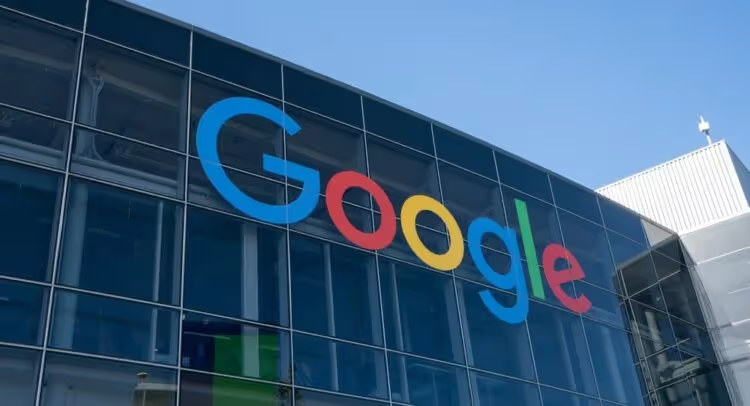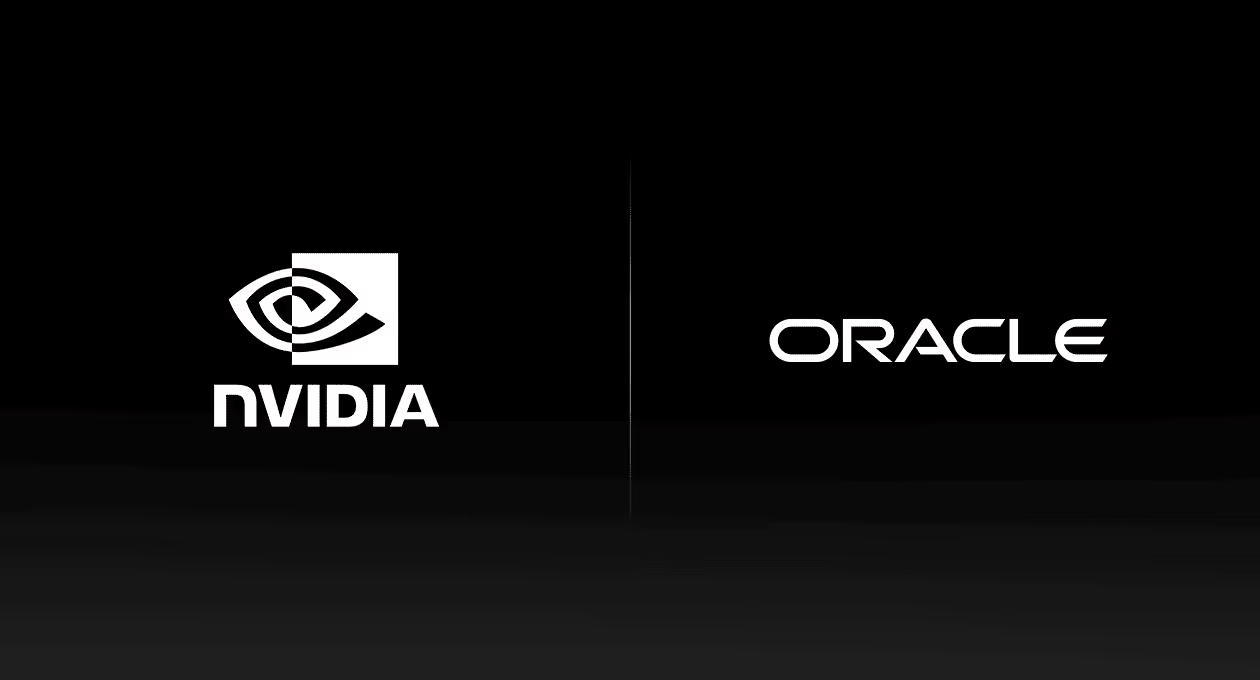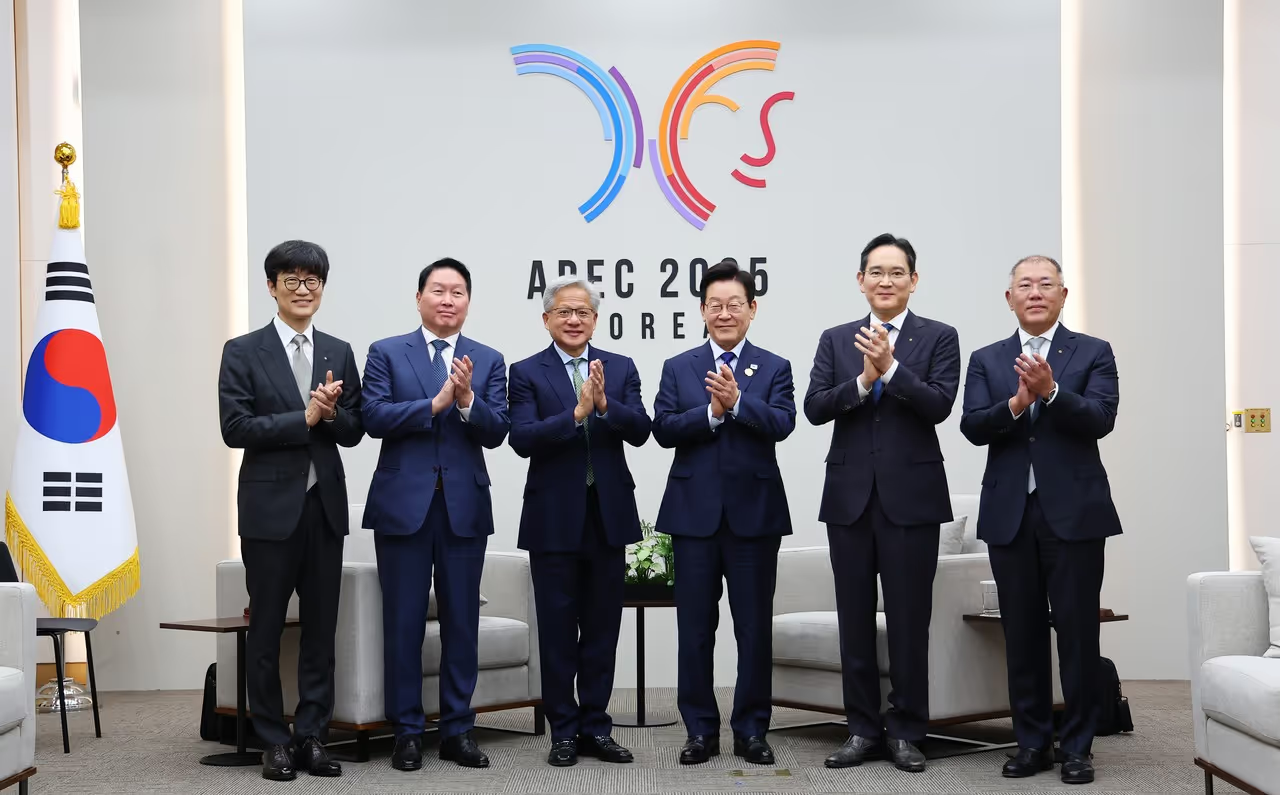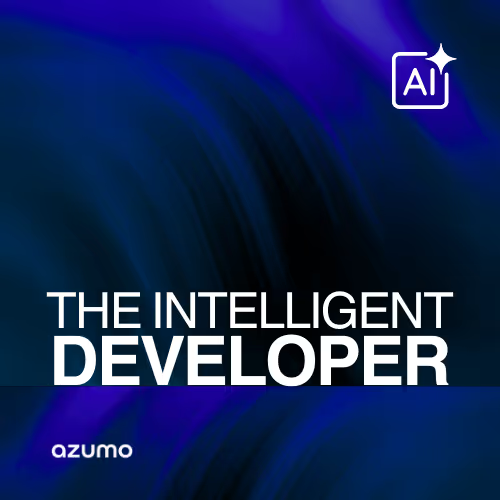The Next Phase of AI Capitalization: Infrastructure, Sovereignty, and Talent
Executive Summary
The first week of November 2025 brings pivotal developments in AI infrastructure, enterprise partnerships, and public accessibility. Google explores a historic $350 billion investment in Anthropic, signaling unprecedented valuation levels in the AI sector. The U.S. Department of Energy, NVIDIA, and Oracle unveil plans for the largest government AI supercomputer featuring 100,000 Blackwell GPUs. Media publishers forge new AI licensing models with Microsoft as traditional search traffic declines. Meanwhile, San Jose launches the nation's first comprehensive AI literacy initiative in partnership with leading AI companies, and South Korea secures over 260,000 NVIDIA GPUs to bolster national AI capabilities. These developments underscore the rapid acceleration of AI infrastructure investment and the urgent need for workforce preparation.
Top AI Stories This Week
1. Google Eyes $350 Billion Anthropic Investment in Historic AI Bet

Announced: November 6, 2025 | WinBuzzer
Google is in early discussions for a new investment in Anthropic that could value the AI startup at over $350 billion, according to reports published November 6. This potential valuation would represent a dramatic escalation in AI investment and position Anthropic among the world's most valuable private companies.
Google has already invested approximately $3 billion in Anthropic through two separate deals—a $2 billion commitment in 2023 followed by an additional $1 billion investment earlier in 2025. The companies recently expanded their partnership in October with a massive cloud infrastructure deal providing Anthropic access to one million Google TPUs and one gigawatt of computing power by 2026.
Strategic Implications:
The $350 billion valuation discussion represents a watershed moment for AI investment. This would value Anthropic higher than most Fortune 500 companies and reflects investor confidence that foundation model providers will capture enormous value as AI transforms enterprise operations. The timing aligns with Anthropic's reported annual revenue run rate approaching $7 billion, with Claude powering over 300,000 businesses globally.
For enterprises, Google's deepening commitment to Anthropic signals intensifying competition among hyperscalers to secure AI partnerships. Organizations evaluating multi-cloud AI strategies should anticipate continued infrastructure improvements and competitive pricing as Google, Microsoft, Amazon, and others vie for enterprise AI workloads.
2. NVIDIA and Oracle Build 100,000-GPU Supercomputer for U.S. Department of Energy

Announced: October 28, 2025 | NVIDIA | U.S. Department of Energy
NVIDIA and Oracle announced a landmark partnership with the U.S. Department of Energy to build the DOE's largest AI supercomputer, featuring a record-breaking 100,000 NVIDIA Blackwell GPUs. The project consists of two interconnected systems delivering a combined 2,200 exaflops of AI performance.
The primary system, Solstice, will deploy 100,000 Blackwell GPUs, while the companion system Equinox will feature 10,000 Blackwell GPUs with availability expected in the first half of 2026. Both systems will be located at Argonne National Laboratory and interconnected by NVIDIA networking infrastructure.
Strategic Implications:
This deployment represents the largest single AI supercomputer commitment by the U.S. government and demonstrates federal recognition that AI-driven scientific discovery requires unprecedented computational resources. The 2,200 exaflops of combined performance will enable researchers to develop frontier models for open science, supporting breakthrough research across healthcare, materials science, climate modeling, and fundamental physics.
For enterprise organizations, the Blackwell architecture's deployment at this scale validates its production readiness. Companies planning 2026 AI infrastructure investments should evaluate Blackwell-based systems for training large-scale models and running complex inference workloads.
3. People Inc. Forges Microsoft AI Licensing Deal Amid Search Traffic Decline

Announced: November 4, 2025 | TechCrunch
People Inc., one of the largest media publishers in the United States, announced a strategic AI licensing agreement with Microsoft on November 4, becoming a launch partner in Microsoft's new publisher content marketplace. The deal comes as Google Search traffic to People Inc. properties has plummeted from 54% to 24% over the past two years due to AI Overviews reducing click-through rates.
Under the agreement, People Inc. content will serve as premium inputs for Microsoft AI products including Copilot. The marketplace operates on a pay-per-use model, contrasting with the lump-sum licensing deal People Inc. previously struck with OpenAI.
Strategic Implications:
This partnership signals a fundamental shift in the economics of content and AI. As generative AI reduces organic search traffic to publisher sites, content creators are pivoting to direct licensing models that compensate them for training data and knowledge base contributions. Microsoft's marketplace approach could become the industry standard.
For enterprises developing AI systems, this trend suggests that high-quality domain-specific content will increasingly require licensing agreements rather than relying on publicly available data. Organizations should budget for content licensing costs as part of their AI development roadmaps.
4. San Jose Launches "AI for All" Public Literacy Initiative

Announced: November 5, 2025 | Mercury News
San Jose Mayor Matt Mahan announced the "AI for All" initiative on November 5, a first-in-the-nation collaboration with Google, OpenAI, Anthropic, and the Bay Area Council to make San Jose "the most AI literate city in the nation." The program provides free AI courses, learning modules, training paths, and certifications to all city residents.
The initiative specifically addresses equity gaps in AI adoption, with courses available in multiple languages to serve San Jose's diverse population, where 50% of residents speak a language other than English at home. The city aims to train over 1,000 municipal employees—approximately 15% of its workforce—by the end of 2026.
Strategic Implications:
San Jose's initiative acknowledges that AI literacy is becoming as fundamental as digital literacy, with profound implications for workforce competitiveness and economic opportunity. For enterprises, this public-sector AI training initiative highlights the growing need for comprehensive AI enablement programs. Organizations cannot assume employees possess the skills to leverage AI tools effectively and should invest in structured AI literacy programs.
5. South Korea Secures 260,000 NVIDIA GPUs in National AI Push

Announced: October 31, 2025 | TechCrunch
NVIDIA CEO Jensen Huang visited South Korea on October 31 for the first time in 15 years to unveil expanded collaborations with major Korean technology companies including Hyundai Motor, Samsung, SK, and Naver. South Korea will secure over 260,000 of NVIDIA's latest GPUs to meet growing national AI demands, with approximately 50,000 GPUs supporting public initiatives including domestic AI foundation model development and a national AI data center.
The announcement coincided with the APEC Summit 2025 and represents a comprehensive deepening of NVIDIA's presence in the Korean technology ecosystem across automotive, consumer electronics, telecommunications, and internet services sectors.
Strategic Implications:
South Korea's commitment to secure 260,000 NVIDIA GPUs demonstrates national-level recognition that AI infrastructure determines competitiveness in the global technology economy. For multinational enterprises, this signals the emergence of regional AI hubs with distinct technical capabilities, regulatory frameworks, and partnership ecosystems. Organizations should evaluate regional strategies that account for local AI infrastructure and partnerships with domestic technology leaders.
Quick Bytes
Character.AI Bans Users Under 18: Following safety concerns, Character.AI announced it will ban anyone under 18 from using its chatbot platform, marking a significant policy shift for the AI conversation platform.
MIT Develops AI-Powered Search-and-Rescue Robot Navigation: MIT researchers developed a new approach enabling search-and-rescue robots to rapidly generate accurate maps and navigate unpredictable environments autonomously.
Market Researchers Embrace AI at 98% Adoption Rate: A November 4 survey reveals that 98% of market research professionals now incorporate AI tools into their work, with 72% using them daily or more frequently.
Legal Battle Intensifies Between Reddit and AI Companies: A major legal dispute escalated between Reddit and leading AI companies including OpenAI, Google, and Perplexity over data scraping practices, with AI firms filing a lawsuit challenging Reddit's restrictions on data access.
Industry Impact Analysis
The developments this week reveal three critical transformations:
AI Valuations Reach Unprecedented Levels: The potential $350 billion Anthropic valuation represents a fundamental shift in how markets value AI companies. Foundation model providers are commanding valuations typically reserved for established technology giants, reflecting expectations that AI will capture massive value across industries.
National AI Strategies Intensify: South Korea's 260,000 GPU commitment and the U.S. DOE's 100,000-GPU supercomputer demonstrate that AI infrastructure is now considered strategic national priority. Countries recognize that AI capabilities will determine economic competitiveness, driving public investment in computing resources, foundation models, and workforce development.
Content Licensing Becomes AI Revenue Stream: The Microsoft-People Inc. deal exemplifies the emerging business model where content creators monetize their intellectual property through AI training and knowledge base licensing. This shift acknowledges that AI systems derive value from high-quality content, requiring compensation structures beyond traditional advertising models.
About Azumo
As AI infrastructure expands and enterprise adoption accelerates, organizations need partners with deep technical expertise to navigate the complex landscape of models, platforms, and deployment strategies.
Azumo specializes in helping enterprises design, build, and scale AI systems that deliver measurable business impact. Our team brings expertise in foundation model integration, custom AI development, multi-cloud deployment strategies, and production-ready AI engineering. Whether you're evaluating AI infrastructure investments, developing domain-specific AI capabilities, or scaling AI from pilots to enterprise-wide deployment, Azumo provides the technical depth and proven methodologies to accelerate your AI initiatives while managing complexity and risk.
Sources
- Google in Talks for Massive New Investment in AI Rival Anthropic, Potentially Valuing Startup at $350B - WinBuzzer, November 6, 2025
- NVIDIA and Oracle to Build US Department of Energy's Largest AI Supercomputer for Scientific Discovery - NVIDIA Newsroom, October 28, 2025
- Energy Department Announces New Partnership with NVIDIA and Oracle to Build Largest DOE AI Supercomputer - U.S. Department of Energy, October 28, 2025
- People Inc. forges AI licensing deal with Microsoft as Google traffic drops - TechCrunch, November 4, 2025
- What can AI do for you? San Jose announces 'AI for All' partnership with Google, OpenAI and Anthropic - Mercury News, November 5, 2025
- Nvidia expands AI ties with Hyundai, Samsung, SK, Naver - TechCrunch, October 31, 2025
AI Intelligence Briefing is published by Azumo. All information verified from official sources as of November 6, 2025.
